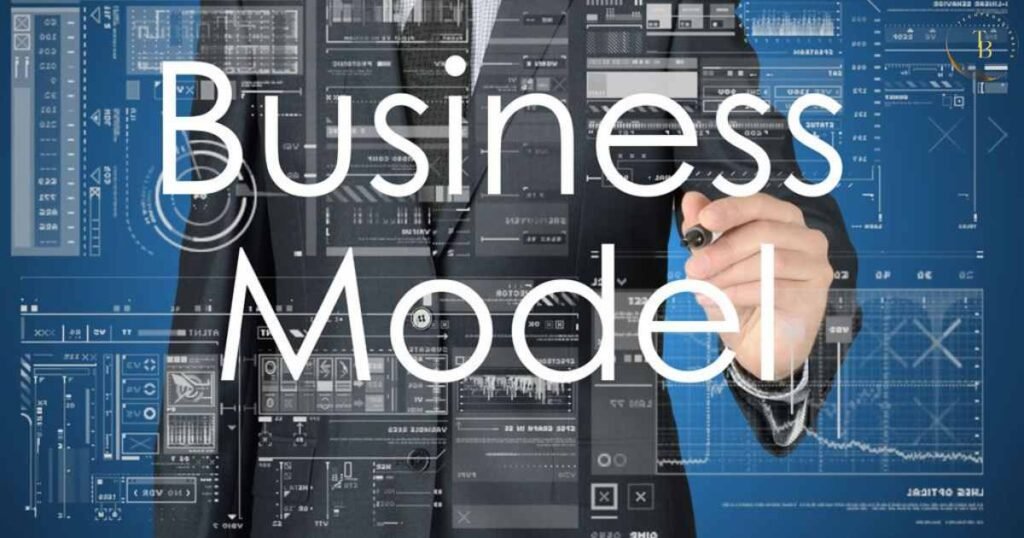In the vast ocean of commerce, the phrase “Business là gì” floats as a beacon, beckoning curious minds to delve into its depths. Translated from Vietnamese to English, this query simply asks, “What is business?” Yet, beneath its seemingly straightforward surface lies a complex and multifaceted concept that forms the backbone of economies worldwide. business la gì.
Accepting the Essence of Business
At its core, business encompasses a spectrum of activities aimed at creating, delivering, and exchanging goods or services to fulfill the needs and desires of consumers. It serves as a conduit for economic transactions, driving innovation, growth, and prosperity.
Key Components of Business

1. Entrepreneurship
Entrepreneurship ignites the spark of innovation, as individuals or groups identify opportunities, take calculated risks, and mobilize resources to bring ideas to fruition. From startups to established enterprises, entrepreneurs navigate the dynamic landscape of business, fueling progress and driving change.
2. Management
Effective management orchestrates the harmonious interplay of resources – human, financial, and material – to achieve organizational goals. Through strategic planning, organizing, leading, and controlling, managers steer the course of businesses, adapting to challenges and seizing opportunities in an ever-evolving environment.
3. Marketing
Marketing serves as the bridge between businesses and their target markets, encompassing a myriad of strategies to attract, engage, and retain customers. From market research to branding, advertising, and sales, marketing initiatives shape perceptions, influence behavior, and drive revenue generation.
Exploring Business Models: From Traditional to Disruptive

Traditional Business Models
Traditional business models have long been the cornerstone of commerce, characterized by hierarchical structures, linear processes, and physical presence. These models often involve brick-and-mortar establishments, standardized products or services, and conventional distribution channels.
While resilient and time-tested, traditional models face increasing pressure to adapt to changing consumer preferences, technological advancements, and global competition.
Disruptive Innovations
Disruptive innovations challenge the status quo, ushering in a new era of business paradigms characterized by agility, scalability, and digital transformation. These innovations leverage emerging technologies to create innovative solutions, disrupt existing markets, and redefine industry norms.
From peer-to-peer platforms and subscription-based services to sharing economies and decentralized finance, disruptive business models redefine value creation, customer engagement, and market dynamics.
Harnessing Technology for Business Growth

Digital Transformation
Digital transformation lies at the heart of modern business strategies, enabling organizations to leverage technology to streamline operations, enhance customer experiences, and drive innovation.
Cloud computing, big data analytics, the Internet of Things (IoT), and artificial intelligence (AI) empower businesses to gather insights, automate processes, and stay agile in an increasingly competitive landscape.
E-Commerce Revolution
The e-commerce revolution has reshaped the retail landscape, offering businesses unprecedented access to global markets and consumers. Online marketplaces, mobile commerce, and social commerce platforms provide a seamless shopping experience, enabling businesses to reach customers anytime, anywhere.
The convergence of online and offline channels blurs the lines between traditional and digital commerce, creating own channel experiences that cater to diverse consumer preferences.
Sustainability: A Catalyst for Change
Corporate Social Responsibility (CSR)
Corporate social responsibility (CSR) emerges as a defining element of modern business practices, as companies recognize the importance of environmental stewardship, social equity, and ethical governance.
CSR initiatives encompass sustainable sourcing, waste reduction, community engagement, and diversity and inclusion efforts, aligning business objectives with societal needs and values.
Green Innovation
Green innovation drives sustainable development, as businesses seek to minimize their environmental footprint while maximizing resource efficiency and resilience. Renewable energy, eco-friendly products.
Circular economy models and carbon-neutral initiatives pave the way for a greener future, demonstrating the business‘s potential to catalyze positive change and address pressing global challenges such as climate change and biodiversity loss.
The Future of Business: Navigating Uncertainty with Resilience

Agility and Adaptability
In an era of rapid change and uncertainty, agility and adaptability emerge as critical business attributes. Organizations must embrace flexibility, experimentation, and continuous learning to navigate unforeseen disruptions, seize emerging opportunities, and stay ahead of the curve in an increasingly dynamic marketplace. Business la gì means that What is Business.
Innovation and Collaboration
Innovation thrives in environments where collaboration flourishes, transcending organizational boundaries and fostering ecosystems of creativity and co-creation. Open innovation, strategic partnerships, and cross-industry collaborations unlock synergies, accelerate business transformation, and drive sustainable growth in an interconnected world.
FAQs: Navigating the Business Landscape

1. What are the Different Types of Businesses?
Businesses span a diverse range of forms, including sole proprietorships, partnerships, corporations, and cooperatives, each with its own legal, operational, and financial implications.
2. How Does Technology Impact Business?
Technology serves as a catalyst for innovation and disruption, revolutionizing traditional business models, enhancing efficiency, and unlocking new avenues for growth. From e-commerce and digital marketing to artificial intelligence and blockchain, technological advancements reshape industries and redefine competitive landscapes. Business la gì.
3. What Role Does Sustainability Play in Business?
In an era marked by environmental consciousness and social responsibility, sustainability emerges as a cornerstone of modern business practices. Companies increasingly integrate sustainability initiatives into their operations, addressing environmental stewardship, social equity, and economic prosperity to create long-term value for stakeholders.
4. How Does Globalization Affect Business?
Globalization transcends geographical boundaries, connecting markets, supply chains, and consumers on a global scale. It presents opportunities for expansion and diversification while also posing challenges related to cultural differences, regulatory compliance, and geopolitical risks.
5. What Skills are Essential for Success in Business?
Success in business demands a diverse skill set encompassing leadership, communication, critical thinking, adaptability, and business judgment. Continuous learning, resilience, and a growth mindset are essential for navigating the complexities of the business landscape.
Conclusion
In the ever-evolving tapestry of commerce, the question “Business là gì” serves as a gateway to exploration and understanding. From its important principles to its far-reaching suggestions.
Business permeates every aspect of society, shaping economies, driving progress, and fostering innovation. By unraveling the intricacies of business. We gain insights that empower us to navigate the challenges and opportunities of the modern world.






